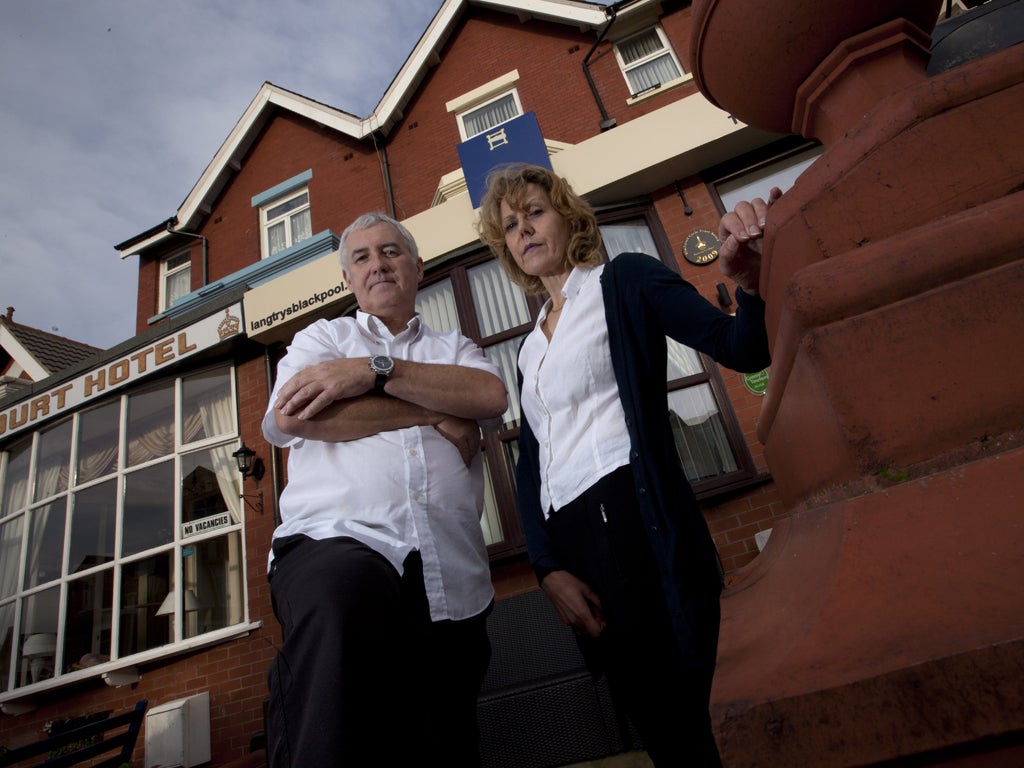Bye-Bye to the B&B
The rapid expansion of budget hotels and visitors' rising expectations are threatening the future of the traditional guest house

Your support helps us to tell the story
From reproductive rights to climate change to Big Tech, The Independent is on the ground when the story is developing. Whether it's investigating the financials of Elon Musk's pro-Trump PAC or producing our latest documentary, 'The A Word', which shines a light on the American women fighting for reproductive rights, we know how important it is to parse out the facts from the messaging.
At such a critical moment in US history, we need reporters on the ground. Your donation allows us to keep sending journalists to speak to both sides of the story.
The Independent is trusted by Americans across the entire political spectrum. And unlike many other quality news outlets, we choose not to lock Americans out of our reporting and analysis with paywalls. We believe quality journalism should be available to everyone, paid for by those who can afford it.
Your support makes all the difference.Fusty bed and breakfasts with their loud carpets and louder landlords have remained stubbornly unchanged for decades. And now they could be facing face their final chintzy curtain.
The expansion of budget hotel chains and the emergence of travellers with high standards but tight budgets, are forcing the old-fashioned, low-grade guest house out of business. More than 1,500 B&Bs with fewer than three stars have closed in England since 2007, a cut of more than a third. In Scotland, one- and two-star B&Bs are down by 63 per cent, while the number of budget hotels is up 80 per cent. A third of guesthouses and B&Bs in the UK report having fewer guests in last month's school half-term than in 2010.
It could all spell the end of shared bathrooms, early breakfasts and nylon sheets. And one man, it seems, must take a large share of the blame – Lenny Henry. The comedian, actor and star of Premier Inn commercials has become the figurehead for the explosion in budget hotels.
Alex Polizzi, Channel 5's Hotel Inspector and granddaughter of the hotelier Lord Forte, said. "I am not at all surprised budget hotels are killing off the grotty B&B – and I am quite pleased. B&Bs got a bad name because of the standards. I get depressed at how often I have to say cleanliness is important. People are being more discerning."
Despite the economic gloom, tourism remains one of the UK's economic success stories and the advent of the "staycation" has helped the industry survive the downturn. However, B&Bs have seen sharp drops in bed occupancy rates in the past year or two. In hotels, bed occupancy is also down, but to a much lesser degree.
Premier Inn, Britain's biggest budget hotel chain, has huge expansion plans, including doubling in size in London by 2016. Patrick Dempsey, managing director of its parent company, Whitbread, said: "Our growth means that we can offer even more people a great night's sleep in the best locations."
Meanwhile, Travelodge has an "aggressive growth plan" to open 36 hotels across the country this year, and a similar number in 2012.
David Weston, chief executive of the Bed and Breakfast Association, said: "People are struggling to fill their rooms. Times are tough for everybody. It is now the norm to have en-suite bathrooms and flat-screen TVs. For B&Bs to compete with budget hotels they have to offer a much more personalised service."
Couples looking for a weekend break are upgrading to boutique hotels while hard-pressed families switch to self-catering accommodation or spend the night under canvas. In England the number of five-star B&Bs is up by almost a quarter, while self-catering businesses accredited to VisitEngland have risen by 31 per cent. James Berresford, VisitEngland's chief executive, said: "Over the last decade, accommodation in England has improved in leaps and bounds."
Sam Nayer, 45, owner of the Escape B&B in Llandudno, north Wales, says people are looking for something better than what they have got at home. "B&Bs can offer something different – a more personal service than hotels, a home-from-home feel. Lots of hotels are bland. Many of the more traditional B&Bs are starting to move into the four-star bracket now, as customers are demanding a better quality service."
The people running B&Bs are also changing. Increasingly couples in their 40s and 50s leave high-powered city jobs for life in the countryside, but cannot afford to give up a regular income.
Emma Shaw, UK communications director for TripAdvisor, summed up the problem when she said: "There are some hotels that for too long have been delivering terrible customer service, in rundown and dirty establishments." In future, B&B will need to stand for brighter and better service.
Case study
David Webb, 56, Blackpool
In 2005 Mr Webb bought Langtrys, a traditional three-star B&B. Six years on and after major refurbishments, it has been given a five-star award
"We ran the business for three seasons with the house as it was when we bought it. I'd describe it as a traditional, plates-on-the-wall B&B. It was just like all the other B&Bs around here and we realised that it wouldn't work. We spent £200,000 on a makeover in 2009 and re-opened to a silver rating. Last year we were awarded gold. Now it's all clean lines, mood lighting and wooden floors.
"The refurbishment has given us a longer season. We attract business people throughout the year and people come to us for the Langtrys experience, not just to visit Blackpool."
Join our commenting forum
Join thought-provoking conversations, follow other Independent readers and see their replies
Comments